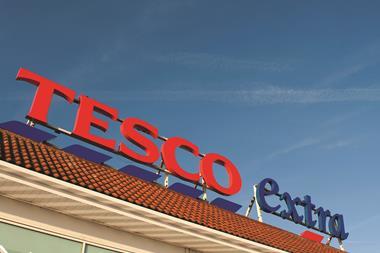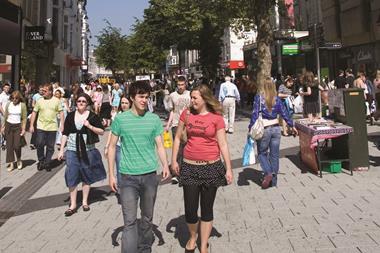A tax on out-of-town supermarkets is not the answer, but rates must be addressed.
I should declare an interest. Aside from using the Tesco car park in Padstow each summer to make calls (it’s the best area for reception!), I find supermarket shopping, well, taxing. However, this summer a group of 20 local authorities took a new slant on this. They are seeking, quite literally, to impose a new tax on out-of-town supermarkets.
Now, I might not like this form of shopping and am a strong advocate for better town centres, but the so-called Tesco tax is surely one of the summer silly season’s most worrying proposals.
Using the Sustainable Communities Act, the councils are asking the government to allow them to impose a levy of 8.5% of the rateable value on out-of-town stores by way of a tax. Their justification is simple: these supermarkets have created the havoc we see in our high streets. Moreover, they claim, supermarkets compete unfairly on price, bully farmers, are environmentally unfriendly and fail to pay the living wage. Their research shows that supermarkets can both afford it and, more particularly, won’t pass it on to the customer. Win-win?
The money raised from this venture is to be used by the local authorities to solve a basket of issues, presented under the veil of town-centre improvement and rejuvenation. The small print goes on to explain how it will help with the wider issues of NHS funding, public transport, low-paid employment and finally to provide rates relief to the small shops that are suffering from (yes, you guessed it), the golden goose they wish to tax.
While it is interesting that this group has acknowledged the impact the out-of-town sector has had on town centres, let us not forget that they (or government via appeal) gave them consent in the first place. Equally, if targeting supermarkets, why not all out-of-town?
It is no secret that I and my colleagues at the Hark Group are passionate about the rejuvenation of town and city centres. We and our partners (including local authorities) are successfully achieving this in urban areas such as Liverpool, Bristol, Basildon and, shortly, Bury.
We also contributed to the Distressed Town Centre Property Taskforce which reported last year, providing strong recommendations for solutions that would improve our town centres. Critically, almost none of the recommendations or solutions required new legislation.
The focus was, and is, on strong local authority leadership, masterplanning and wider engagement by local authorities with the whole community and the private sector. The wider industry and private sector are fully supportive and behind this report. Indeed many organisations have followed through with active investment in sectors such as housing and student accommodation. At no point did the report suggest taxing out-of-town retail.
However, this proposal has flagged the urgent need to resolve the whole system of rates. This tax disproportionately hits our town centres, particularly the most distressed. For a tax that is supposed to be “fair” it makes a mockery of the word. And that is before we consider the huge advantage the internet has over bricks and mortar, to the tune of £27bn.
The problem is that we do not have a unified solution between occupier and investor groups. While I am confident the request by this group to tax supermarkets will be kicked into the sand dunes this summer, it has put the retailer (rather than owner) in the front line.
Perhaps, if any good comes out of it, we will see a more concerted effort by the representative bodies to come together and find a simple and unified solution to put to government. Divided we are conquered. United we succeed.
Mark Williams is director of Hark Group






























No comments yet